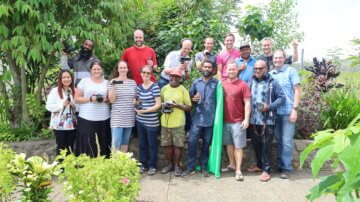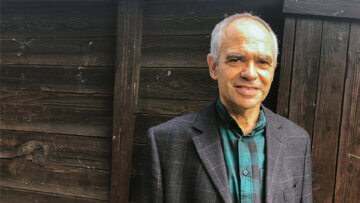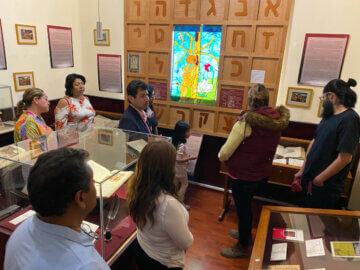Polycentrism in the missio Dei
As Christianity moved farther away from the Christendom model of centralised control to other models of structure and leadership, other paradigms have been proposed along the way. However, one possibility, called the concept of polycentrism, has not been considered with any significant effort. In order to understand polycentrism, this research covered a literature review of seven spheres:
- the urbanised-economic context;
- political-ideological associations;
- globalglocal socio-cultural situations;
- organisational-leadership contexts;
- missional movements;
- the global church; and
- the journey of the mission agency called the Wycliffe Global Alliance.
The application of the concept of polycentrism to the specific context of the Wycliffe Global Alliance has enabled conclusions about the relevance of polycentrism in mission structures that are part of the missio Dei. The study concluded that polycentrism was a very helpful methodology that understood and resolved the inherent tensions and influences brought about by globalisation upon structures in God’s mission.
(This summary was derived from the abstract on page one of the full article.)
Download and read a PDF of the full article: Polycentrism in the missio Dei
Dr. Kirk Franklin serves as Executive Director of the Wycliffe Global Alliance and is part of the research project, ‘Ecodomy’, directed by Prof. Dr Nelus Niemandt, Department (of) Science of Religion and Missiology, Faculty of Theology, University of Pretoria.
The latest
View all articles
03/2024 Pacific: Papua New Guinea
Informing, teaching, inspiring: PNG workshop teaches video storytelling for language communities
PNG workshop teaches video storytelling for language communities
Read more
02/2024 Global
Looking ahead at 2024
As the year unfolds, we marvel at the work of God in our rapidly changing world. And, we look forward to a number of gatherings and conversations intended to draw us together.
Read more
01/2024 Americas
Telling the Bible's Story
It may come as a surprise that a museum is among the Wycliffe Global Alliance organisations.
Read more